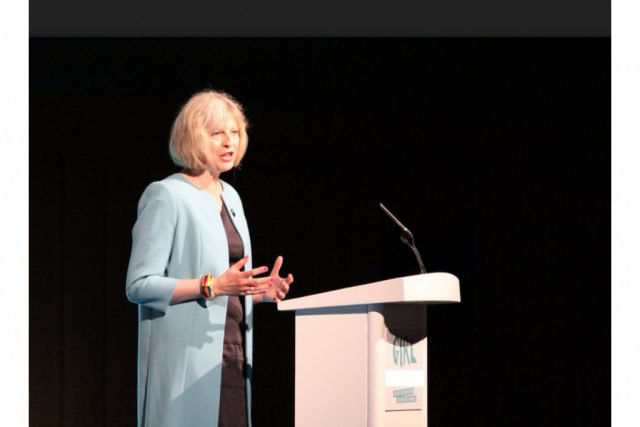Home » Uncategorised »
What Will Theresa May’s Government Mean for the Housing Market?
This article is an external press release originally published on the Landlord News website, which has now been migrated to the Just Landlords blog.
Last week, Theresa May became the UK’s 76th Prime Minister, becoming the first female PM since Margaret Thatcher. But what will her Government mean for the housing market?
Her appointment as PM is welcome news for the property market and landlords, who have suffered a period of political uncertainty since the country voted to leave the EU on 23rd June.
Now that Theresa May is in office, how will the new Government improve the property market, and the country?
Making Brexit a success
In a statement following her appointment, May promised to build a “better Britain” and “to make a success” of Brexit. She spoke of the need for strong leadership to lead us through these uncertain economic and political times, and the need to negotiate the best deal for Britain outside of the EU.
Although many had called for a second referendum, May – who was part of the Remain campaign – has insisted that “Brexit means Brexit” and there will be no second vote.
Dealing with the housing crisis

What Will Theresa May’s Government Mean for the Housing Market?
May has made it clear that she will tackle the housing crisis as Prime Minister.
In a speech delivered in Birmingham, she said: “Unless we deal with the housing deficit, we will see house prices keep on rising. Young people will find it even harder to afford their own home. The divide between those who inherit wealth and those who don’t will become more pronounced. And more and more of the country’s money will go into expensive housing instead of more productive investments that generate more economic growth.”
What will happen to house prices?
If the Government finds a way to control net immigration and May delivers on getting “more houses built”, she could have a chance of swinging the supply and demand imbalance seen across the UK, particularly in London, where house prices have spiralled in recent years.
However, London estate agent Portico believes that this is quite unlikely, as the country does not currently have the housebuilding capacity, in terms of manpower, to see supply outstrip demand.
The firm argues that unless this changes and the supply of housing increases significantly, certainly in the short-term, it doesn’t expect to see an immediate drop in prices across the capital. Outside of prime central London, the market is driven by homeowners rather than landlords, who Portico points out will always need somewhere to live, regardless of the Brexit. They will also continue to need to upsize as their circumstances change.
Additionally, the prime central London market was showing signs of a slowdown prior to the referendum, and in areas of central London, prices began to cool following a decline in property sales. Portico believes that this decrease is likely to continue over the rest of the year.
What must happen?
Housebuilder shares have dropped post-Brexit, and most firms are now reassessing land approvals.
The Regional Director of Portico, Mark Lawrinson, explains: “May and her Government need to not just build more houses, but make the building of houses easier, be that by reducing planning restrictions on brownfield sites, encouraging more young people to take up the trade through funding and education, speeding up the planning process time it takes for developers to get sites off the ground, or incentivising smaller developers – as well as the larger groups – to build with potential tax breaks for hitting a certain quota year-on-year.
“We then need to make the process of buying property easier and cheaper; as much as Stamp Duty Land Tax has been reviewed, it is still a significant cost to any potential purchaser, on top of a large deposit required to obtain a mortgage. If we are successful in building more houses and reducing the costs associated with buying a property, it will help generate more transactions, which will keep momentum in the market and keep house prices at a steady level.”
Should you buy now?
Lots of buyers, both homeowners and landlords, have been holding off property purchases due to political uncertainty and a possible interest rate cut.
However, now that we have regained some political certainty and the Bank of England looks set to leave interest rates as they are, those holding off property purchases should now be ready to act.
The future of the housing market
Although it is yet unclear what Theresa May’s Government will mean for the housing market and for Britain, it is clear that her pro-EU approach and years of experience in UK Government has created a level of certainty for the future. Ultimately, this is what the property market needs to regain momentum at this time.




